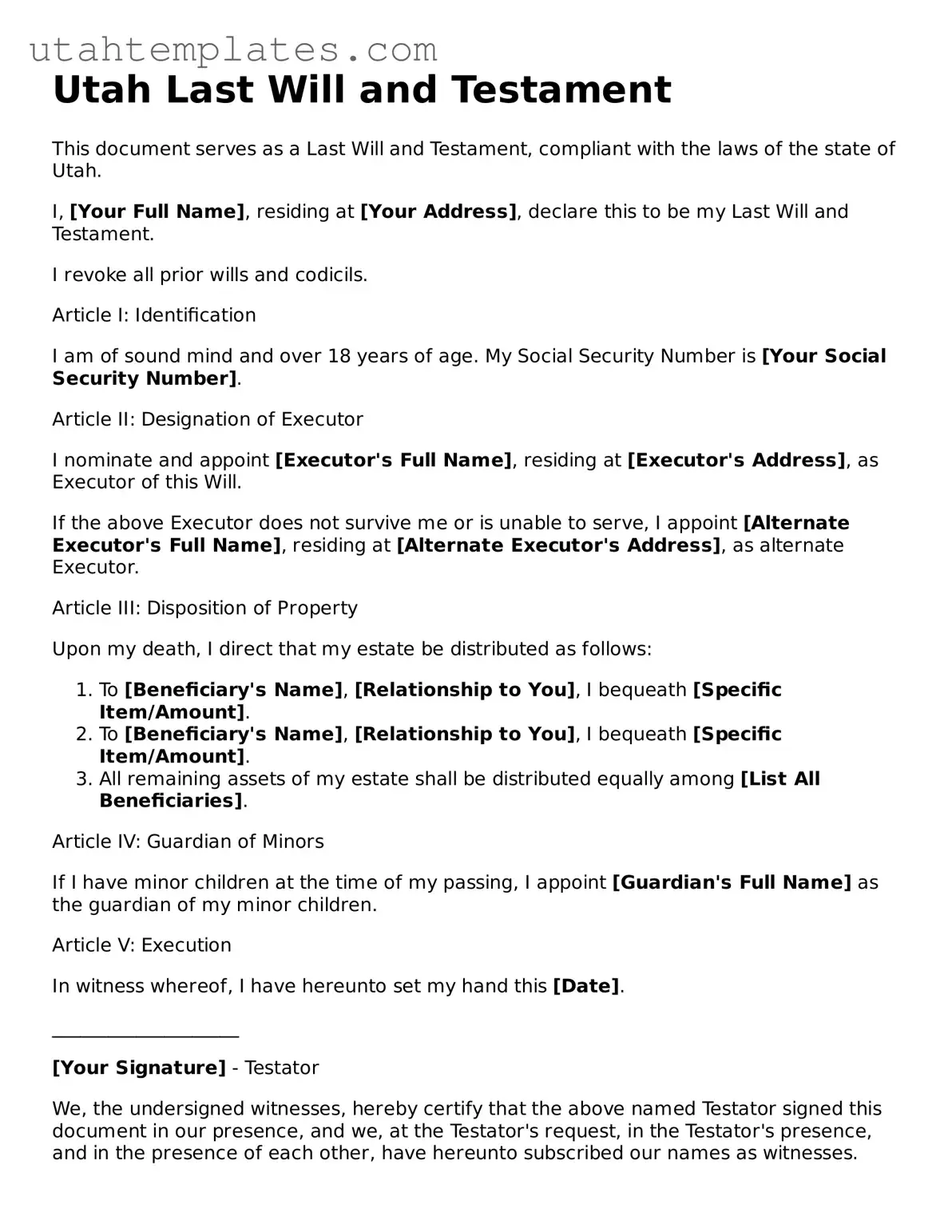Free Last Will and Testament Form for Utah
A Last Will and Testament form in Utah is a legal document that outlines how a person's assets and responsibilities will be managed after their death. This essential tool allows individuals to express their final wishes regarding the distribution of their property and the care of any dependents. Understanding how to create and execute this document can provide peace of mind for both the individual and their loved ones.
Launch Last Will and Testament Editor Here

Free Last Will and Testament Form for Utah
Launch Last Will and Testament Editor Here
Need to check this off quickly?
Fill out Last Will and Testament online without dealing with paper.
Launch Last Will and Testament Editor Here
or
Free PDF File
